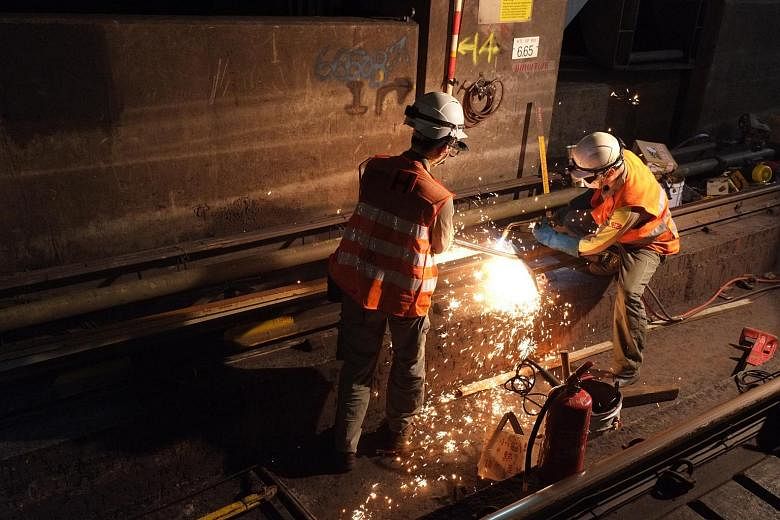I share senior transport correspondent Christopher Tan's sentiments that the deteriorating performance of our MRT network becomes all the more stark when a comparison is made with Hong Kong's MTR ("Long way to catch up with Hong Kong's rail reliability"; May 19).
As an engineer, I have always been impressed with the MTR's rigorous maintenance regime, the key to a successful metro system.
There is heavy emphasis on pre-emptive maintenance. In-house engineering teams work tirelessly, identifying power grid fluctuations and replacing rail and train components before the end of their usable lives - before technical faults have had time to develop.
In 2014, MTR Corp spent 37 per cent of its revenue on maintenance, renewals and service improvements on the rail network.
In contrast, SMRT spent 19 per cent of its rail revenue on maintenance and repair in the 2015 financial year.
Indeed, Transport Minister Khaw Boon Wan has acknowledged in a blog post that Singapore underinvested in rail maintenance.
While Singapore's rail operators have, no doubt, attempted to overhaul and improve their own maintenance procedures, there is still a clear need to reinforce the culture of professionalism and dedication to excellence that underpin the MTR's supreme reliability.
Another important factor to consider is which metrics we employ to measure rail network reliability.
Psychological research has long established that human beings are not well attuned to appreciating complex statistics that are difficult to quantify in actual experiences, nor do they take kindly to numbers that are provided with limited context.
Hence, statistical measures such as a target of 200,000km between delays might be technically laudable, but they still fail to resonate with the layman, who is unlikely to grasp the full meaning and implications of the yardstick.
Such statistics may also lack the emotive punch or motivational kick for rail operators to step up their efforts, since it is all too easy to lose these figures in a sea of numerical key performance indicators.
Perhaps more meaningful and impactful measures of reliability would be the overall number of incidents resulting in service disruption, as well as the total number of passengers affected by these delays.
These figures are easier for people to visualise and grasp, and so, arguably, carry more heft.
A shift in philosophy, in both the way we conceptualise our problems as well as how we formulate our solutions, would go a long way towards closing the gap with Hong Kong.
Paul Chan Poh Hoi

